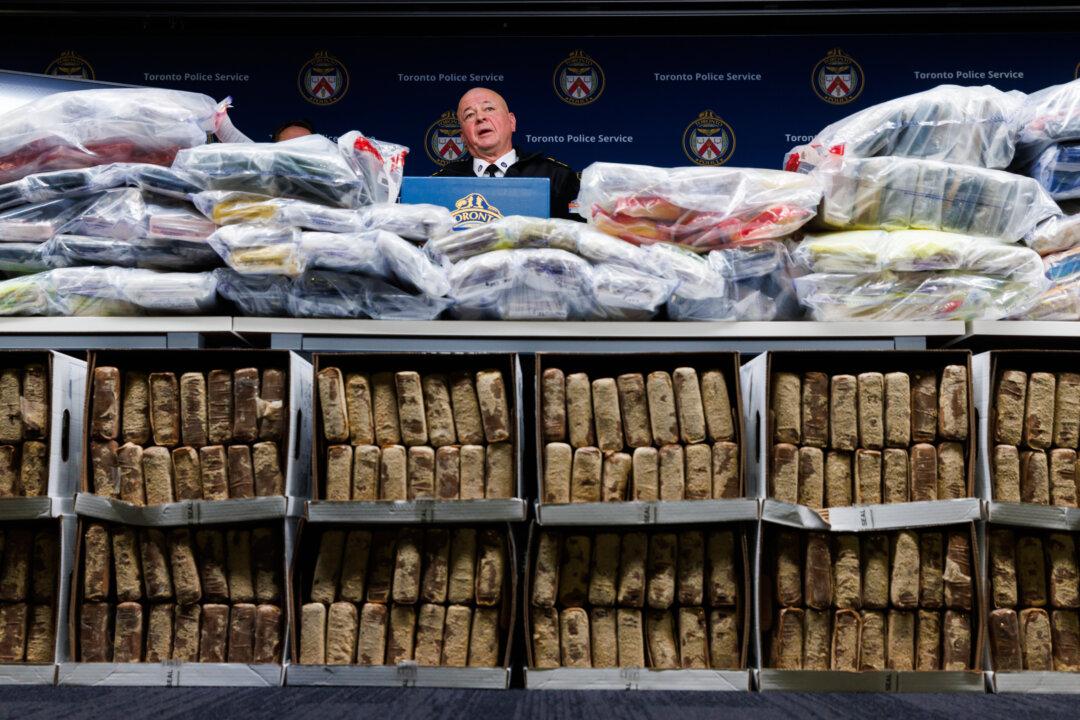Toronto police have announced a record seizure of $83 million worth of cocaine, saying it could be linked to a Mexican cartel.
The 835 kilograms of cocaine seized is alleged to have the “hallmarks” of coming from Mexico’s Jalisco New Generation cartel, Toronto Police Service (TPS) Chief Myron Demkiw said during a Jan. 21 press conference, calling it the “largest cocaine seizure in the history” of the service.





